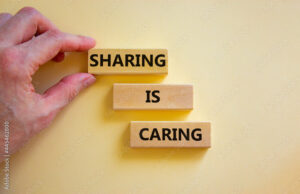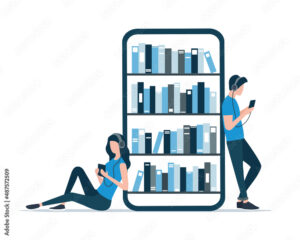Opening up about open ed
The topic of open education and the culture of sharing is so interesting. My blog today is a mix of thoughts that have been pacing in my brain for years and there are also aspects that are fresh from class earlier this week when we discussed open education. With the videos I watched to supplement my thinking, I could go on for days, but I will stick to a few key points of these topics.
The culture of sharing in teaching:
 If it wasn’t for awesome teachers who so kindly shared their “stuff” with me every time I taught a course that was new to me, I would not have a) survived those semesters and b) become the teacher I am today because how and what I teach today is a patch-work quilt of all of the things that someone else and their content has taught me. So, even though they might not see this (although I’m hoping at least one of them will – you know who you are), THANK YOU. Thank you times a million. You are the kind of goodness I hope I am for others who are just getting their bearings or need a helping hand. By being the grateful recipient of sharing, I try to mirror this behaviour because I think it is important and we have to start somewhere if we want to create a particular culture around it. As we discussed in class this week, lack of reciprocity can be frustrating, no question about it. One piece of advice I received for life in general that I constantly keep in my back pocket is that I cannot expect me from others; if I am willing to share, I cannot expect others to share with me or for them to pay it forward as it was paid forward to me. Despite this, I will continue to share because typically those who ask for help are asking for survival purposes and for that I will not judge them because I’ve been there. In support of creating a culture of sharing, I often share things I produce with my department in case anyone could benefit from it; this is not in a conceited effort, but it is about being able to lighten the load for someone else and the ability to share my creativity for someone to ‘remix’ it, as Lawrence Lessig says, with their own creative spin and purposes.
If it wasn’t for awesome teachers who so kindly shared their “stuff” with me every time I taught a course that was new to me, I would not have a) survived those semesters and b) become the teacher I am today because how and what I teach today is a patch-work quilt of all of the things that someone else and their content has taught me. So, even though they might not see this (although I’m hoping at least one of them will – you know who you are), THANK YOU. Thank you times a million. You are the kind of goodness I hope I am for others who are just getting their bearings or need a helping hand. By being the grateful recipient of sharing, I try to mirror this behaviour because I think it is important and we have to start somewhere if we want to create a particular culture around it. As we discussed in class this week, lack of reciprocity can be frustrating, no question about it. One piece of advice I received for life in general that I constantly keep in my back pocket is that I cannot expect me from others; if I am willing to share, I cannot expect others to share with me or for them to pay it forward as it was paid forward to me. Despite this, I will continue to share because typically those who ask for help are asking for survival purposes and for that I will not judge them because I’ve been there. In support of creating a culture of sharing, I often share things I produce with my department in case anyone could benefit from it; this is not in a conceited effort, but it is about being able to lighten the load for someone else and the ability to share my creativity for someone to ‘remix’ it, as Lawrence Lessig says, with their own creative spin and purposes.
The idea of open education:

Through the discussion in class this week and through some of the available videos, one theme I found that ran through the topic of open ed was access/accessibility, in both support and critique of the concept. On one hand, the possibilities are endless in what information (and from where and when) you can offer your classes (and colleagues) because the options are expanding exponentially. The Why Open Education Matters video shares a few of the open ed resources available for multiple purposes, such as Khan Academy. On the other hand, there is the critical piece of the cost of access. This is in reference to our discussion about what information becomes accessible to certain people based on affiliation (access to articles because a student at a university = privilege) or other aspects of privilege (access to Wi-Fi, devices, etc.). I will say though, speaking strictly from a Saskatchewan perspective, the insufficient funding for education is putting teachers in a position of reliance on open ed. Although the funding situation is absurd, I am not saying this forced reliance is a negative, in fact maybe open ed will eventually implode the politically driven texts book industry creating more money for ed funding…a digression for another day…

In my particular context of teaching high school English, open ed is great because there is no text book, per se, for an English class so every semester I essentially create one, albeit untraditional. Open ed resources have been amazing in creating flexibility and accessibility for my students and me. Being able to access entire novels as PDFs or audio recordings, or being able to use certain free programs for creative projects puts us in an unprecedented time of education and we should use this advantage to our (and our students’) benefit. I use resources that are free to access that “celebrate amateur culture”, which is not to be interpreted as “amateur-ish culture…[but] people producing for the love of what they’re doing and not for the money” (7:41-7:52), touching on the advantage and benefits of a culture of sharing. There is also an aspect of not trying to reinvent the wheel with concepts I teach; if someone out there has created something that says what I am trying to say but in a more creative and appealing way, I’d be straight up silly not to let them take the stage. Ultimately, I am certainly glad I teach in the era of open ed resources and I wonder how they will continue to shift education in the future.
Great post Jacquie! I think your quote “I can’t expect me from others” really spoke to my heart. I feel like this is a lesson I still haven’t learned. I really appreciate your take on open education and relating it to a Saskatchewan point of view. I hope that we can shift this paradigm with open education and make resources/content more readily available for everyone! 🙂
Thanks for your post!
The concept of Open Education isn’t new, it appears to be becoming a formalized concept of what teachers have done for a long time. I echo your comments about the gratitude to everyone who has ever shared resources with me.
I am curious as to the ways that the concept of Open Education is going to receive push-back. I know that I utilize materials that I have ‘found’ on the internet, but also know that there are costs associated with the production of that original material.
I absolutely loved reading your blog post! Your gratitude for teachers who shared resources, commitment to reciprocity, and exploration of accessibility challenges are commendable. Your exploration of open education delves into the advantages it offers, such as the endless possibilities for accessing and offering information to students and colleagues. The recognition of both the potential and the challenges of accessibility is thought-provoking.
Jacquie, your post about open education resonated so profoundly with me. I completely agree with you, if it wasn’t for a handful of incredible educators who shared resources with me when I began teaching, I don’t think I would have made it through my first year of teaching. As I began my first year in the classroom, I distinctly remember one colleague of mine saying something like “I wouldn’t trade my first year of teaching back for a million dollars”. At the end of my first year, I realized what she meant! If more people would be willing to share their great stuff, I wonder how many first-year teachers (as well as their students) would benefit from this, rather than spending every night planning until wee-hours of the morning, or continuously spending money on ‘Teachers Pay Teachers’ (of which I have yet to ever use as I refuse to pay for knowledge/resources, although there’s a few times that I’ve been tempted). Great post, thanks so much for sharing!